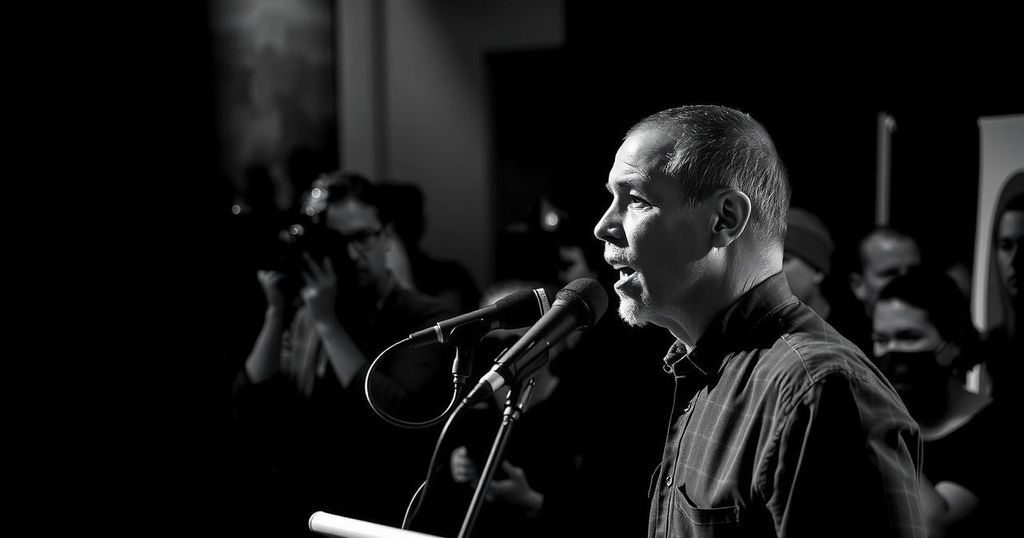The Georgian Dream party has won the parliamentary elections in Georgia, securing over 54 percent of the votes and attaining 89 seats in the 150-member parliament. This result has sparked protests from pro-Western opposition parties, who allege the election was corrupt, referring to it as a ‘constitutional coup.’ The election’s outcome raises concerns regarding Georgia’s political alignment with either the European Union or Russia, reflecting the ongoing struggle for democratic integrity in the region.
The recent parliamentary election in Georgia has resulted in a victory for the ruling Georgian Dream party, as announced by the country’s electoral commission. Despite significant protests from pro-Western opposition groups, who characterized the election as a “constitutional coup,” the governing party secured over 54 percent of the votes based on the counting of more than 99 percent of the precincts. As a result, Georgian Dream has obtained 89 out of 150 seats in parliament, granting them control yet falling short of the absolute majority necessary for comprehensive constitutional amendments. Opposition parties, which collectively garnered over 37 percent of the vote, have voiced strong dissent against the results. The Coalition for Change emerged as the most successful opposition faction, receiving 10.822 percent of the vote. The election was particularly salient for pro-Western Georgians, who framed it as a crucial decision concerning the nation’s orientation towards either increased cooperation with Russia or a trajectory toward integration with the European Union. Brussels expressed apprehensions that the election would determine Georgia’s future potential for EU membership. Opposition leaders, including Tina Bokuchava from the United National Movement (UNM), have claimed the election results were manipulated, stating, “This is an attempt to steal Georgia’s future,” and asserting the UNM’s refusal to acknowledge the outcome. Nika Gvaramia, leader of the Ahali party, described the process as a “constitutional coup” and expressed confidence that Georgian Dream would not retain power indefinitely. There were reports of violence and intimidation at polling stations, inciting calls from local monitoring groups for the annulment of the election results. A video surfaced online showing irregularities, such as apparent ballot tampering, while other reports detailed assaults on election observers. Bidzina Ivanishvili, the founding figure behind Georgian Dream, lauded the vote outcome as a testament to the party’s resilience amidst adverse conditions, declaring it as an impressive electoral performance. Ivanishvili’s party has framed its campaign around the necessity of maintaining peace and stability in a context marked by geopolitical tensions, particularly with regard to the war in Ukraine. Meanwhile, public sentiment appears divided, with concerns about a perceived shift towards Russian influence in domestic affairs prevailing among certain voter demographics.
The parliamentary elections in Georgia have historically been a reflection of the country’s complex political landscape, particularly its balancing act between Western integration and relations with Russia. The Georgian Dream party, founded by billionaire Bidzina Ivanishvili, has been in power since 2012 and has faced criticism for alleged authoritarian practices, raising concerns in Europe about the nation’s democratic integrity. The opposition parties have increasingly positioned themselves as pro-European, aiming to pivot away from Russian influence, especially in the light of ongoing geopolitical crises in the region. The recent election has become a pivotal moment in defining Georgia’s political future in relation to both the European Union and Russia, particularly as the EU has placed conditions on Georgia’s prospects for membership, primarily related to democratic reforms.
In conclusion, the Georgian Dream party’s electoral victory has significant implications for the country’s political trajectory, indicating a continued division between pro-Western aspirations and closer ties to Russia. The opposition’s strong claims of electoral misconduct and the protests that followed underscore the contentious political climate in Georgia. With a notable lack of absolute majority in parliament, the capacity of Georgian Dream to implement drastic constitutional changes remains restricted, leaving the potential for ongoing political unrest and debate regarding the nation’s identity and future direction intact.
Original Source: www.aljazeera.com






